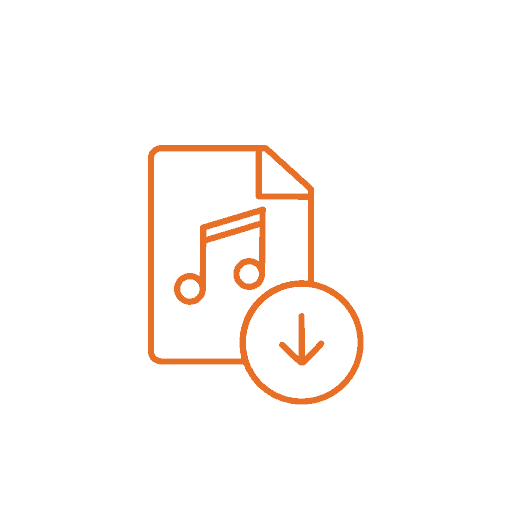Meteoroid and cosMOG Clinical Trials for MOGAD Treatments
September 16, 2024
In the “ABCs of MOGAD” episode titled, “Meteoroid and cosMOG Clinical Trials for MOGAD Treatments,” Krissy Dilger of SRNA was joined by Dr. Michael Levy. They described MOG antibody disease and its similarities to NMO and MS, explaining current therapeutic options [00:01:56]. Dr. Levy talked about the cosMOG clinical trial, detailing the mechanism and potential of rozanolixizumab, and the criteria for participation [00:04:54]. The discussion also covered the Meteoroid trial and satralizumab as a potential treatment for MOGAD, comparing its design and eligibility criteria with those of cosMOG [00:15:12]. Both trials are actively enrolling participants, with the aim of preventing disease relapses and further expanding treatment options in the future [00:20:50].
*Please note: Rozanolixizumab may now be administered in the home setting.
Transcript
[00:00:02] Announcer: “ABCs of MOGAD” is an education podcast series to share knowledge about MOG antibody disease or MOGAD, a rare neuroimmune disorder that preferentially causes inflammation in the optic nerves and spinal cord. “ABCs of MOGAD” is hosted by SRNA, the Siegel Rare Neuroimmune Association.
[00:00:25] SRNA is a nonprofit focused on support, education, and research of rare neuroimmune disorders. You can learn more about us on our website at wearesrna.org. This series is sponsored in part by Amgen; Alexion, AstraZeneca Rare Disease; and UCB.
[00:00:52] Krissy Dilger: Hello and welcome to “ABCs of MOGAD.” My name is Krissy Dilger, and I moderated this episode titled, “Meteoroid and cosMOG Clinical Trials for MOGAD Treatments.” For this episode, I was pleased to be joined by Dr. Michael Levy.
[00:01:09] Dr. Levy is an associate professor at Harvard Medical School and Director of the Neuroimmunology Clinic and Research Laboratory at Massachusetts General Hospital. You can view his full bio in the podcast description. Welcome, and thank you for joining me today. Can we start off by providing a brief explanation of what MOG antibody disease is?
[00:01:36] Dr. Michael Levy: MOG antibody disease is an autoimmune condition that causes optic neuritis and transverse myelitis. It’s very similar to both NMO in the predilection for the optic nerve and spinal cord involvement, but also very similar to multiple sclerosis in terms of mostly attacking myelin as opposed to damaging other parts of the nervous system.
[00:02:00] They clinically all have the same features when the attack starts. It’s hard to tell the difference between optic neuritis from MS, MOG or NMO, although NMO tends to be more severe. MOG can be very severe also. But then there’s a healing period that seems to be better for MOG people compared to NMO.
[00:02:21] It’s also very good for MS. So, there are a lot of clinical features that overlap, but it seems to fit nicely in between NMO and MS, and it has its own antibodies so we can clearly distinguish the differences among these in the diagnostic work up.
[00:02:39] Krissy Dilger: Got it. And what are the current therapies offered for the maintenance of this disease?
[00:02:47] Dr. Michael Levy: Well, MOG is interesting because at the onset, everybody is treated the same. Everyone gets a course of steroids, then we figure out what you have. And if you have MOG, you might respond better to IVIG. That’s also true for ADEM with MOG and without MOG antibodies. But MS we don’t really use IVIG. In NMO, we prefer plasma exchange.
[00:03:12] Now all of that is at the onset. After the inflammation goes away from that attack, people with MOG have only a 50/50 chance of relapsing. And if you’re starting on treatment, the whole point of treatment is to prevent the next relapse. In NMO, if you test positive for aquaporin-4, we know you’re gonna relapse, we know it’s going to be bad.
[00:03:34] So, nobody leaves my clinic without a choice of medication because we have to start something. For MS we mostly treat for the long term. We put people in treatment in order to keep them out of a wheelchair in 15 years. But with MOG, it’s a little bit different because if half of the people won’t relapse anyway, then we’re a little hesitant to put 100% of people in treatment to keep 50% from relapsing.
[00:04:00] Although there’s some data that, at least for a few months, if you treat there’s a better chance of remaining monophasic single attack. For people who are relapsing MOG, there are off-label treatments. This is the same way that we always start with rare diseases. We use treatments that we think will work that we borrow from related diseases and it’s the same for MOG.
[00:04:24] We borrow CellCept, we borrowed IVIG. Those are our top two and then we borrowed tocilizumab and they’re all fairly effective and there are pros and cons to each of those treatments that we could talk about, but they’re all off-label.
[00:04:38] Meaning they’re not approved by the FDA. Insurance hates us because they cost a lot of money. The CellCept is cheap, but the other two are expensive and we don’t have proof that they work. We just have experience that they do.
[00:04:52] Krissy Dilger: And so, today we are here to talk about two trials for MOGAD treatment that will, if successful, we’ll see how they go and, and maybe added into that list of therapies offered for MOGAD. So, let’s start with the cosMOG trial. Can you tell us how the cosMOG clinical trial came to be? And what is the background of how, I might say this wrong but rozanolixizumab became considered a potential MOG treatment?
[00:05:31] Dr. Michael Levy: Rozanolixizumab we shorten it as rozumab. Rozumab is medication that is new to neuroimmunology, new to MOG new to NMO and MS. The way that it works is that in your body you have a mechanism to recycle your plasma all the time. A bunch of it gets chunked up, the good proteins are saved, the bad proteins are targeted for recycling.
[00:06:01] To save the antibodies there’s a receptor called the neonatal Fc receptor, and it saves your antibodies so that they’re not destroyed. So, every time your plasma is gobbled up, the antibodies are saved and put back out so that they can do their job.
[00:06:16] This drug, rozanolixizumab, it blocks that. That means that when your plasma is taken up for degradation, the antibodies are degraded as well, and it works fairly quickly. A single dose of this medication will drop your antibodies about two-thirds.
[00:06:32] That might sound familiar to people who’ve had plasma exchange. With plasma exchange about two-thirds of your antibodies are removed every other day through a filtration process. And these antibody levels may also sound familiar to people who use IVIG. In IVIG, one of the mechanisms is that it dilutes all of your natural antibodies, but then it triggers the recycling of all your native ones.
[00:06:56] So, these all sort of follow the same mechanism. And every disease where IVIG and plasma exchange have been useful, these drugs have been introduced and they’ve been very successful. Myasthenia gravis for example, rozanolixizumab is already approved for that.
[00:07:12] Because we know IVIG well, we think IVIG is useful in MOG. We approached the company, and we said, hey, this seems like a good opportunity to develop a drug for MOG. They bought into it. Jumped straight into a phase three trial. It launched a couple of years ago, 65 sites worldwide.
[00:07:32] This is a drug that’s injected under the skin, takes about 1015 minutes to get in under the skin, and then diffuses into the body and it’s just repeated every week. What it does is it depletes levels just like IVIG and plasma exchange and then your levels come back up and then it’s depleted.
[00:07:52] And it just goes over and over and over again and that just keeps the MOG antibody on a constant basis that keeps it depleted. So, we don’t know if it works. This is a trial in progress. It’s placebo controlled and I think it should read out in 2026 and then we’ll know for sure if it works.
[00:08:14] Krissy Dilger: So, we’ve got a few years left in this trial phase. I guess you answered several of my questions I think already in that explanation which was great. But just to kind of circle back, what is the broad research question that this trial is attempting to answer? And have there been safety trials yet?
[00:08:45] Dr. Michael Levy: What we’re trying to establish is whether or not this medication can prevent the next relapse. Again, with MOG people they know that once the damage is done, it’s done and there’s a healing process. But it’s not like hitting your immune system again, suppressing the immune system is gonna make the healing process faster.
[00:09:05] Once the inflammation is gone, the healing has to take place on its own. And so, if you’re going to use a medication to target the immune system, you’re really just targeting the next relapse. You’re trying to prevent that from occurring.
[00:09:19] And so, right now the trial is only enrolling people who have relapsing MOG, not people who’ve only had one attack. Because one attack, 50/50 chance you’re not going to have a second. So, we don’t want to treat all those people. You have to declare that you’ve had relapsing disease with MOG and then you can enroll.
[00:09:39] Krissy Dilger: And I don’t know if you mentioned if there have already been safety trials.
[00:09:47] Dr. Michael Levy: There have not, not with MOG specifically. There are safety trials in healthy people, safety trials with myasthenia gravis and these are all close enough. The FDA feels like people who are healthy or people who have myasthenia, if they had a safety issue with this drug, that it would apply to MOG as well.
[00:10:10] Krissy Dilger: And you mentioned only relapsing confirmed MOG patients can participate. Are there any other parameters for who can participate? Children?
[00:10:20] Dr. Michael Levy: There are. Children, no. We really tried hard, but the drug has to have a safety record in adults before it can be applied to children. So, we were thinking about maybe like a tier trial, once half of the adults are enrolled then maybe we could open it up to kids.
[00:10:40] But there are so many additional barriers for enrolling children that we just decided let’s separate them out. Do adults first and then kids. Otherwise, it might sacrifice the whole trial just to get kids in. But we know that about 30% to 40% of MOG people are under 18. And so, we have to do the trial in kids next. here’s no choice for that.
[00:11:05] Krissy Dilger: And can participants continue on other management therapies while they’re in this trial or will they be required to stay off other therapies?
[00:11:16] Dr. Michael Levy: They can’t be on immune therapies. But if they’re on high blood pressure pills or pain medicine or anything else, they can stay on those. But we don’t want any of the immune therapies to interfere. And I forgot to mention a couple of other inclusion criteria.
[00:11:33] We want relapsing MOG as I mentioned, but the relapse has to be within the past year because we don’t want people who’ve been in a prolonged remission. It’s possible that if you had two relapses five years ago, that you may never have a third attack.
[00:11:48] There are people who’ve had just one or two or three events and never anything more. So, we want people who have relapsing disease but also more recent disease. And then the last exclusion relates to cancer and other conditions like that, that could interfere. So, with those that would have to be excluded.
[00:12:12] Krissy Dilger: I think you’ve already talked a little bit about this, but what is the status of the trial thus far? And have there been any results that you are able to report on yet or is it too soon?
[00:12:23] Dr. Michael Levy: The status of the trial is that it’s enrolling actively. We’re still very much looking for participants. At our site in particular we have quite a few who are participating at our site, and I think we’re a little bit overwhelmed at the moment. It’s a weekly visit and there’s lots of assessments and we’re very appreciative to all the generous patients who’ve signed up.
[00:12:50] But there are many other sites. There are at least nine sites, I believe, in the U.S., several around the world. So, anywhere that you’re watching this video, there’s probably a site close to you and we could always find one or help you find one if you need to. But it is very actively enrolling in Europe, in Asia, North America, South America, and Australia.
[00:13:17] Krissy Dilger: Awesome. Yes, and I know SRNA has that trial on our website as well. You can always email us, and we’d be happy to help you find it. And, if successful, who will be potentially eligible for this treatment in the future?
[00:13:37] Dr. Michael Levy: Depends how the FDA sees this. They’re certainly going to require that people have the MOG antibody. That’s part of the clinical criteria too. So, most of us don’t call anybody MOG unless they have the MOG antibody. But that would probably be written on the label for the FDA and probably have to have relapsing disease. Now, we’re going to want to use it as doctors and patients may want to use it even in people who’ve never had a second attack.
[00:14:06] Maybe people want it for a period of time or maybe for a prolonged period of time and that will be technically off-label probably. The label will be written to follow the guidelines in the clinical trials which would be relapsing MOG, relapse in the past year, adult, and everything else will be considered off-label.
[00:14:27] But we’ll be working towards expanding the indications. We’ll be working towards getting an indication in children. We might be working towards an indication in monophasic disease and so there’ll be more work to be done.
[00:14:41] Krissy Dilger: Awesome. Well, thank you so much and I think that’s all we need to talk about with cosMOG unless there is anything else you’d like to add?
[00:14:51] Dr. Michael Levy: No, I can’t tell you anything about how the trial is progressing. It’s going. There is lots of activity, but I can’t say anything because that would break the blind and we have to be very scientifically rigorous so that we can tell whether this drug actually works or not.
[00:15:10] Krissy Dilger: Great. So, moving on, there’s another trial that is I believe ongoing, but we can talk more about it. I think the nickname or so is called Meteoroid. Can you tell us how this trial came to be and what the background is on how satralizumab became considered a potential MOGAD treatment?
[00:15:34] Dr. Michael Levy: Yeah, so both Meteoroid and cosMOG are both sort of cosmic names. It builds on local trial names from NMO world. Like Sakura Sky and Sakura Star. I don’t know how they came up with these names, but that’s the theme. Satralizumab you’ll recognize as Enspryng, which is already approved for NMO.
[00:16:01] And so, for people with MOG, there was one MOG person in the NMO trial and treated. And also, we’ve been using a lot of tocilizumab in MOG. I mentioned that’s one of our favorite off-label options. It has the exact same mechanism as satralizumab.
[00:16:20] So, we’ve already been using it, and the manufacturer took notice, and they said, well, we have a better option. This is a drug that we only have to give once a month, and we know that people are using the IV form and the subcutaneous form that’s given more frequently. Let’s just develop this for MOG.
[00:16:41] And once one clinical trial launches the companies start to panic. They think, okay, if the clinical trial is already completed by the time we go in, then it’s going to be much harder to get approval. So, this is what happens in clinical trials, as soon as one launches, everybody who’s been thinking about it has to jump in at the same time, and so there are a lot of parallels.
[00:17:04] This clinical trial design is almost identical to the previous one. It’s 50/50 placebo. So, you might be enrolled into the placebo arm, you might be enrolled into the treatment arm. You don’t know which arm you’re in. But in both trials, if you have one attack then you’re out of that blinded period. And then you get free drug for the rest of the time.
[00:17:28] So, both designs are very, very similar that way. There’s one big difference. In the Meteoroid trial with satralizumab you are allowed to be on CellCept or azathioprine or low-dose prednisone. This is the same deal they made in the NMO trials. With rozanolixizumab, it’s pure placebo.
They feel like they don’t want to contaminate the results. Because if it’s a close call, they want to be sure the drug works. With satralizumab, they did this in NMO, and they still saw very clear results. So, they feel like a little bit of background therapy is not going to muddy the waters.
[00:18:04] Krissy Dilger: Great, and I guess similar to the cosMOG trial, what is the broad research question that this trial is attempting to answer? And have there been safety trials yet?
[00:18:16] Dr. Michael Levy: Exact same outcome. They’re trying to prevent the next relapse. The inclusion criteria are almost identical. Meteoroid with satralizumab allows one relapse in the past two years as opposed to just one in the past one year for rozanolixizumab. So, a little bit more generous. Otherwise, identical. Can’t have cancer. Can’t have aquaporin-4 disease.
[00:18:39] You have to test positive for the MOG antibody. You have to otherwise meet all of the clinical criteria. But they’re very similar otherwise and they’re both subcutaneous injections. Rozanolixizumab takes about 10-15 minutes for the infusion. Satralizumab just a shot.
[00:18:57] Krissy Dilger: And this is also only for adults?
[00:19:00] Dr. Michael Levy: I’m sorry, you’re right. I forgot to mention that satralizumab already has safety data in children as young as 12 or 13. As long as that child is over 35 kg in body weight. So, about 80 pounds or so, 85 pounds. As long as they meet that weight threshold, then they can enroll as teenagers for satralizumab only.
[00:19:27] Krissy Dilger: Right, it’s exciting. What is the status of the trial thus far? Is it similar? Can’t really report any results, or can you?
[00:19:41] Dr. Michael Levy: I cannot. I can tell you that it’s actively enrolling. It’s busy just like rozanolixizumab, expected to read out also in 2026. And also has about the same number of sites worldwide. I think there are a few more sites in the U.S. that are available, but again, every continent except for Antarctica. There’s a place for you.
[00:20:10] Krissy Dilger: Awesome, and I guess the same people who would be eligible for cosMOG if successful would be the same people eligible for?
[00:20:23] Dr. Michael Levy: Essentially the same population, that’s right. With that one exception of, if you’ve only had one relapse in the past two years, you could still participate in Meteoroid, but not in cosMOG. And then if you’re a child, it’s also just Meteoroid. And if you need to stay on that background therapy, you don’t want to come off, and it’s approved CellCept, azathioprine, and prednisone, that’s Meteoroid, not rozanolixizumab.
[00:20:50] Krissy Dilger: Awesome. So, to participate in either of these studies, a person would not need to necessarily, for instance, be a patient at Mass General or one of the sites, they can just enroll independently?
[00:21:04] Dr. Michael Levy: They do have to connect to a site. So, let’s say you live in Maine, then you don’t have to be a patient of mine at Mass General, but you would come to me. And so, you would just reach out to me, email, telephone, you can yell at me, do whatever you need to get my attention, and say I want to be part of this trial. And then you’ll sign a consent form to give me permission to review your chart.
[00:21:32] I’ll go through all of your eligibility criteria and then I’ll say, you can’t participate because you had cancer four years ago. Or I might say, yeah, you’re perfectly eligible. Here’s the deal. Got to make sure you’re fully aware of all the risks and benefits. If you still want to participate at the end of that long conversation, sign on the line and we get you started. I’ll get all the blood tests and then get the drug going.
[00:21:56] Krissy Dilger: Awesome. Well, thank you so much. That’s all the questions that I have for you today and it’s all very exciting. I know people are eager to find out if these trials are going to be successful or not, so fingers crossed.
[00:22:11] Dr. Michael Levy: Thanks, Kristina.
[00:22:15] Announcer: Thank you to our “ABCs of MOGAD” sponsors, Amgen; Alexion, AstraZeneca Rare Disease; and UCB. Amgen is focused on the discovery, development, and commercialization of medicines that address critical needs for people impacted by rare autoimmune and severe inflammatory diseases. They apply scientific expertise and courage to bring clinically meaningful therapies to patients. Amgen believes science and compassion must work together to transform lives.
[00:22:49] Alexion, AstraZeneca Rare Disease is a global biopharmaceutical company focused on serving patients with severe and rare disorders through the innovation, development, and commercialization of life-transforming therapeutic products. Their goal is to deliver medical breakthroughs where none currently exist, and they are committed to ensuring that patient perspective and community engagement are always at the forefront of their work.
[00:23:17] UCB innovates and delivers solutions that make real improvements for people living with severe diseases. They partner with and listen to patients, caregivers, and stakeholders across the healthcare system to identify promising innovations that create valuable health solutions.
LISTEN & SUBSCRIBE
TO PODCAST
DOWNLOAD MP3
DOWNLOAD TRANSCRIPT






 Michael Levy, MD, PhD
Michael Levy, MD, PhD




